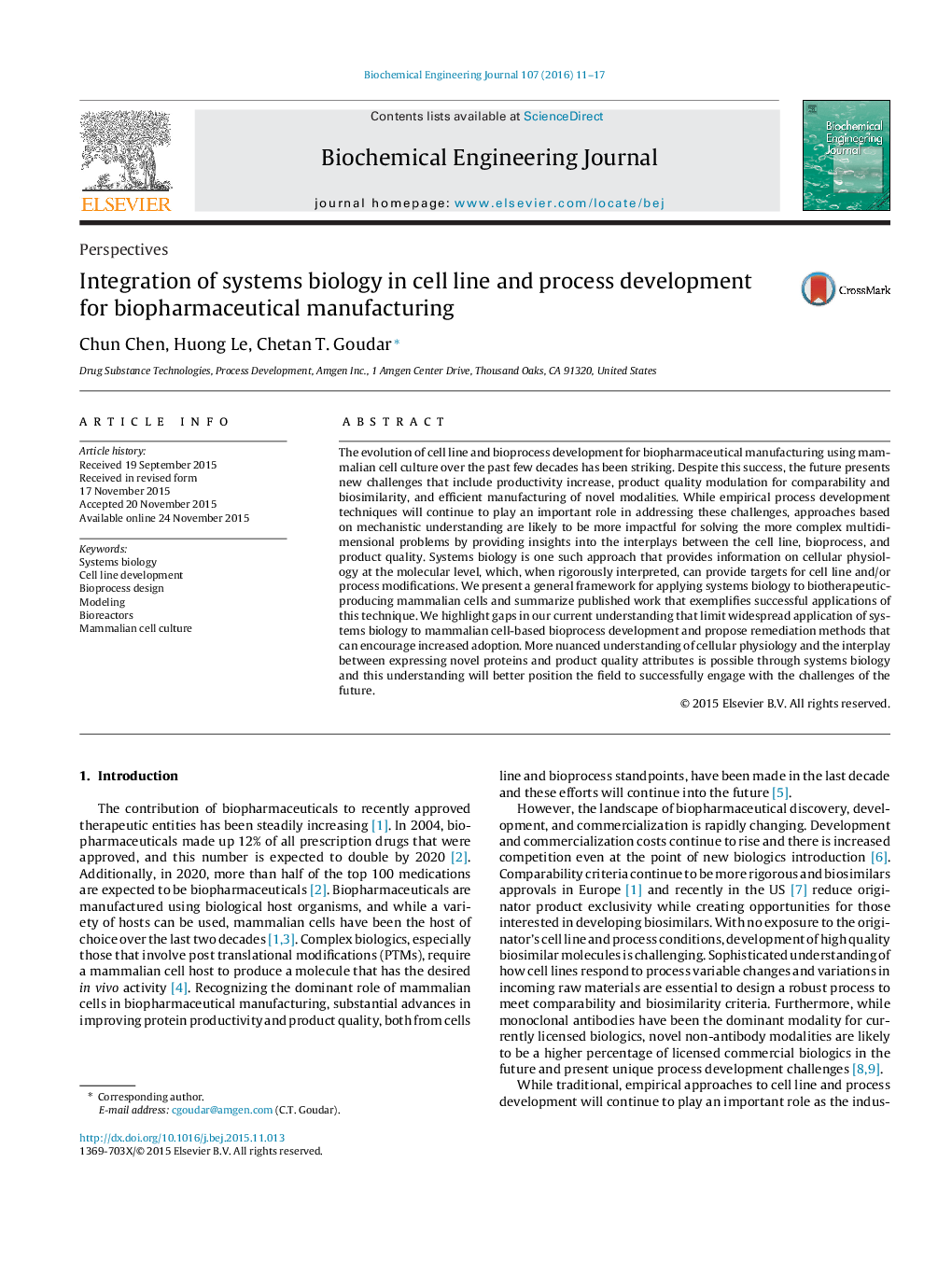| Article ID | Journal | Published Year | Pages | File Type |
|---|---|---|---|---|
| 2779 | Biochemical Engineering Journal | 2016 | 7 Pages |
•We discuss systems biology approaches in cell line and process development.•We summarize key enablers for systems biology applications in CHO cells.•We provide a framework of applying systems biology in cell line and bioprocess development.•Applications are reviewed to illustration the potential of systems biology.•Future outlook, current limitations, and remediation approaches are discussed.
The evolution of cell line and bioprocess development for biopharmaceutical manufacturing using mammalian cell culture over the past few decades has been striking. Despite this success, the future presents new challenges that include productivity increase, product quality modulation for comparability and biosimilarity, and efficient manufacturing of novel modalities. While empirical process development techniques will continue to play an important role in addressing these challenges, approaches based on mechanistic understanding are likely to be more impactful for solving the more complex multidimensional problems by providing insights into the interplays between the cell line, bioprocess, and product quality. Systems biology is one such approach that provides information on cellular physiology at the molecular level, which, when rigorously interpreted, can provide targets for cell line and/or process modifications. We present a general framework for applying systems biology to biotherapeutic-producing mammalian cells and summarize published work that exemplifies successful applications of this technique. We highlight gaps in our current understanding that limit widespread application of systems biology to mammalian cell-based bioprocess development and propose remediation methods that can encourage increased adoption. More nuanced understanding of cellular physiology and the interplay between expressing novel proteins and product quality attributes is possible through systems biology and this understanding will better position the field to successfully engage with the challenges of the future.
